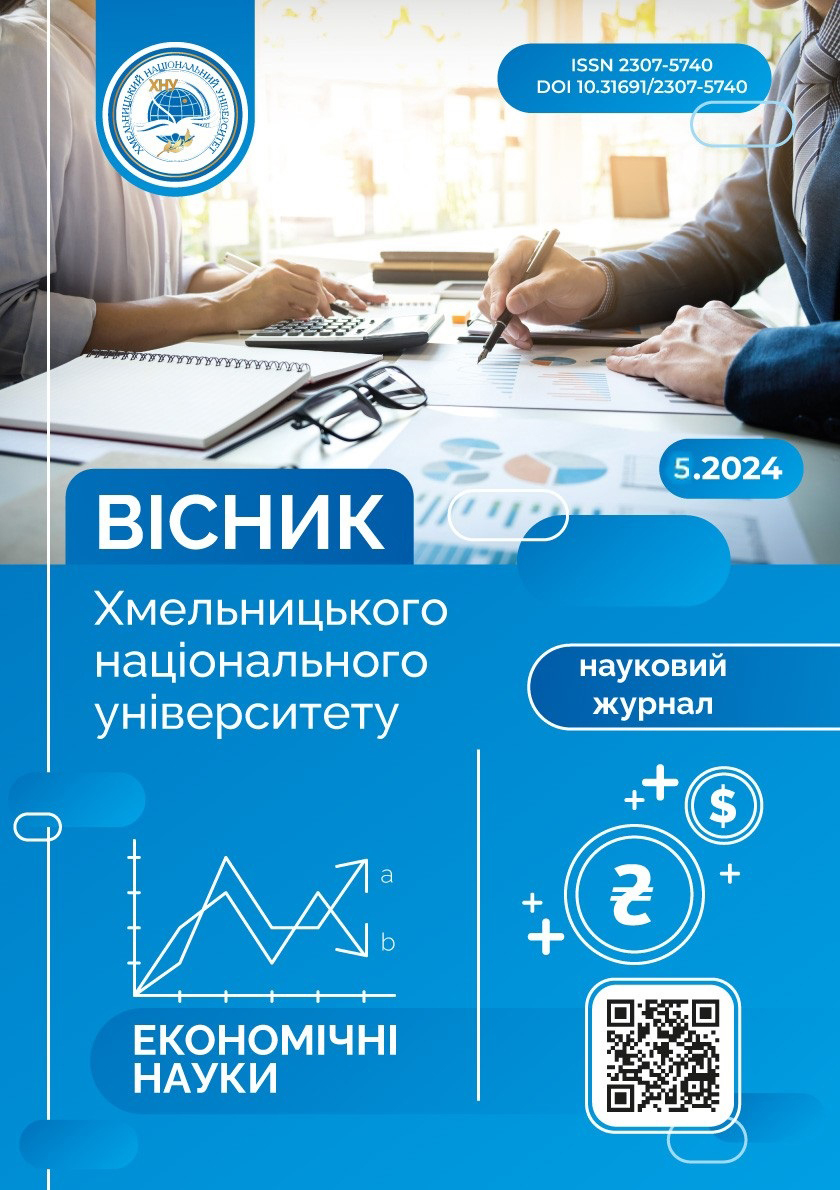ВПЛИВ ТРАНСПОРТНОЇ ІНФРАСТРУКТУРИ НА ЕКОНОМІЧНИЙ РОЗВИТОК РЕГІОНІВ, ОЦІНКА ЕФЕКТИВНОСТІ УПРАВЛІННЯ ДОРОЖНІМ ГОСПОДАРСТВОМ
DOI:
https://doi.org/10.31891/2307-5740-2024-334-13Ключові слова:
транспортна інфраструктура, економічний розвиток регіонів, управління дорожнім господарством, транспортні мережі, транспортні ресурсиАнотація
Дана стаття досліджує вплив транспортної інфраструктури на економічний розвиток регіонів, з особливим акцентом на оцінці ефективності управління дорожнім господарством. Сучасна транспортна інфраструктура є ключовим чинником, який визначає темпи соціально-економічного зростання регіонів, забезпечуючи інтеграцію національних економік в глобальний ринок, стимулюючи інвестиції та сприяючи створенню нових робочих місць. Вплив транспортних мереж охоплює різні аспекти регіонального розвитку, включаючи підвищення мобільності населення, зниження транспортних витрат, покращення доступності товарів та послуг, що, в свою чергу, підвищує конкурентоспроможність регіонів. Однак управління дорожнім господарством стикається з рядом викликів, таких як недостатнє фінансування, зношеність інфраструктури, неефективність управлінських процесів та екологічні проблеми. У статті проаналізовано останні дослідження та публікації в даній сфері, що дозволяє виявити основні тенденції і проблеми, з якими стикається дорожня галузь. Зокрема, розглядаються питання впливу транспортної інфраструктури на ВВП регіонів, зайнятість населення, розвиток підприємництва та загальний рівень життя. В статті виділяються основні недоліки в управлінні дорожнім господарством, зокрема, недостатнє використання сучасних технологій, відсутність інтегрованого підходу до планування та розвитку транспортних мереж, а також відсутність довгострокового стратегічного планування. На основі проведеного аналізу пропонується комплексний підхід до оцінки ефективності управління транспортною інфраструктурою, який включає використання кількісних та якісних методів оцінки, а також врахування соціально-економічних, екологічних та фінансових аспектів. Також у статті наводяться рекомендації щодо підвищення ефективності управління дорожнім господарством, зокрема, шляхом впровадження інноваційних технологій, розробки ефективних механізмів фінансування та модернізації існуючої інфраструктури. Крім того, стаття окреслює перспективи подальших досліджень у цій галузі, акцентуючи увагу на необхідності розробки нових методів управління та оцінки, що дозволять підвищити ефективність використання транспортних ресурсів та забезпечити сталий розвиток регіонів в умовах зростаючих економічних викликів.



